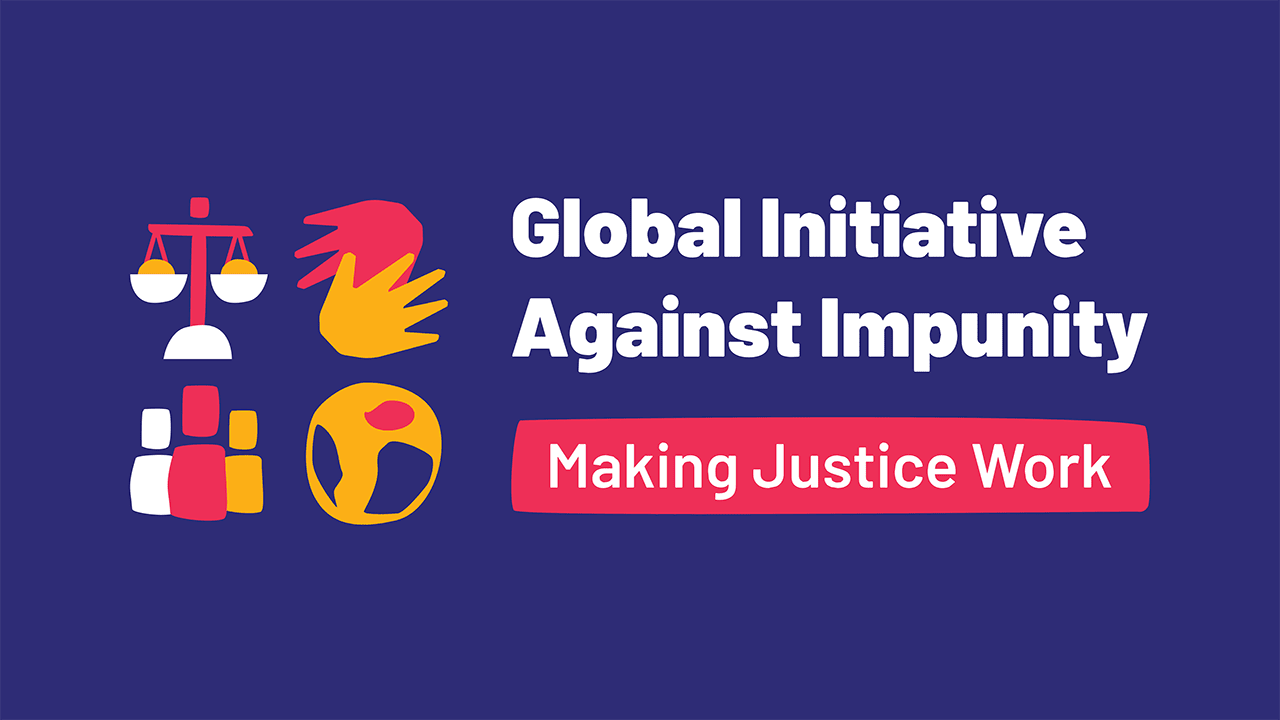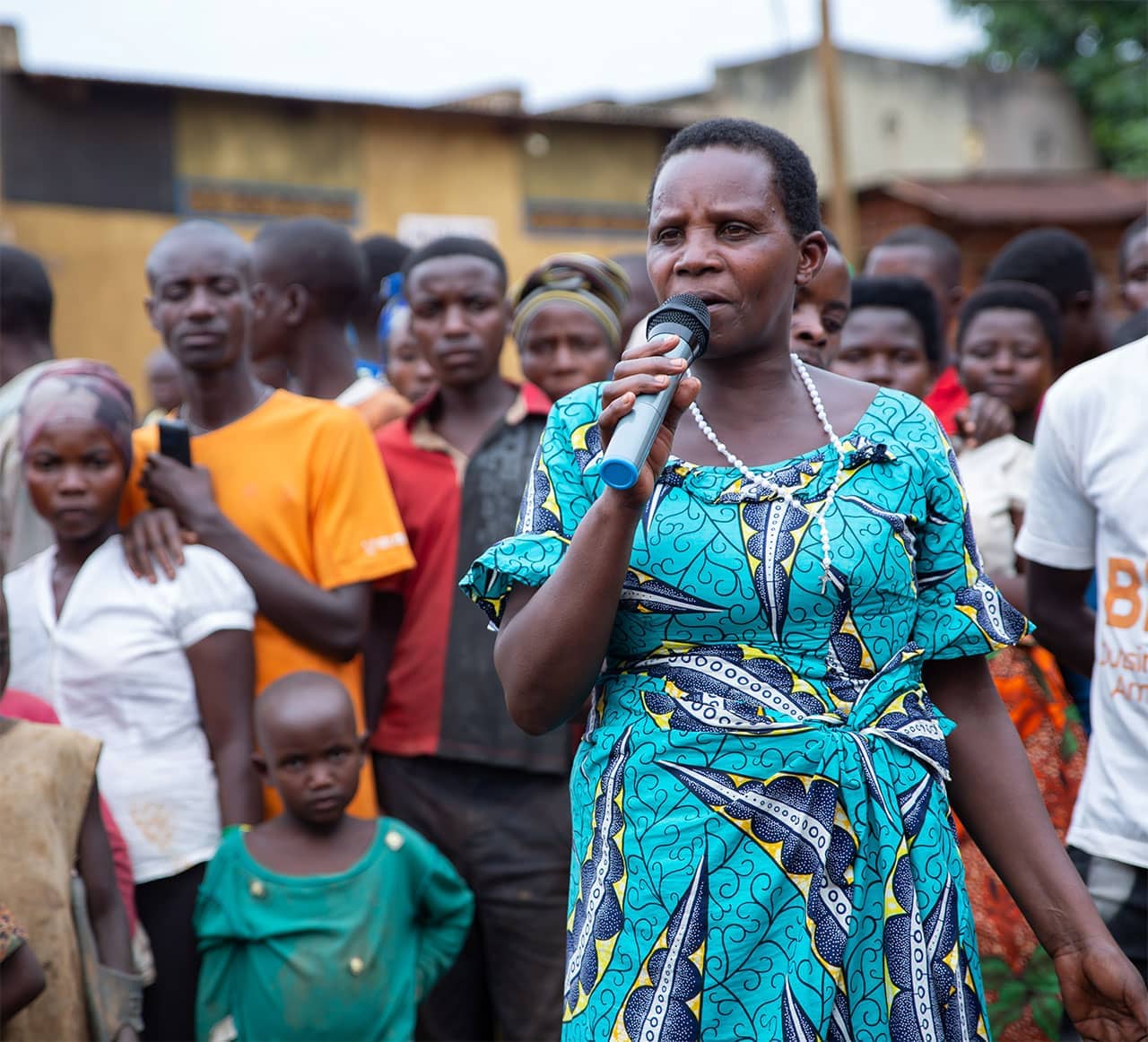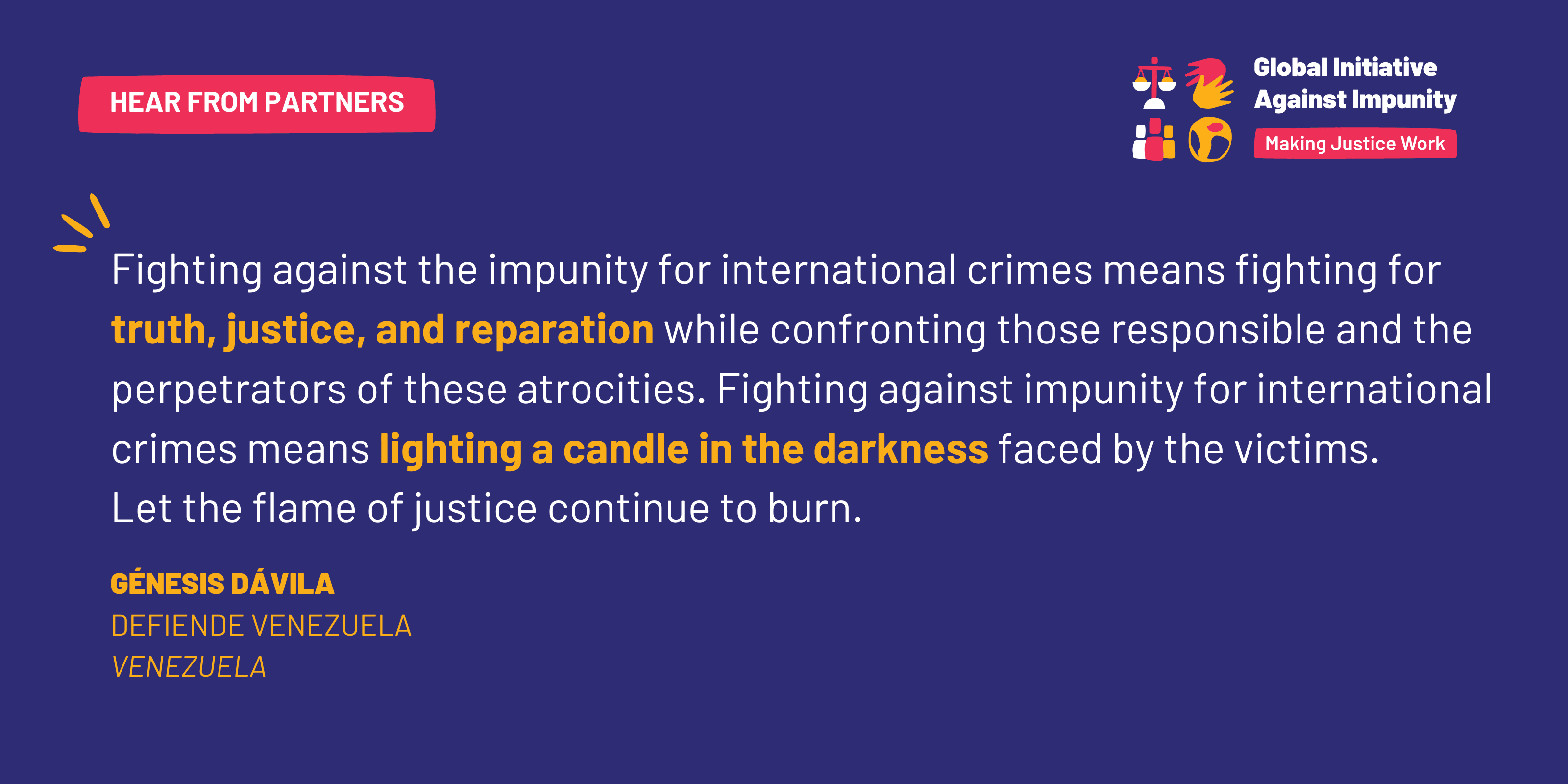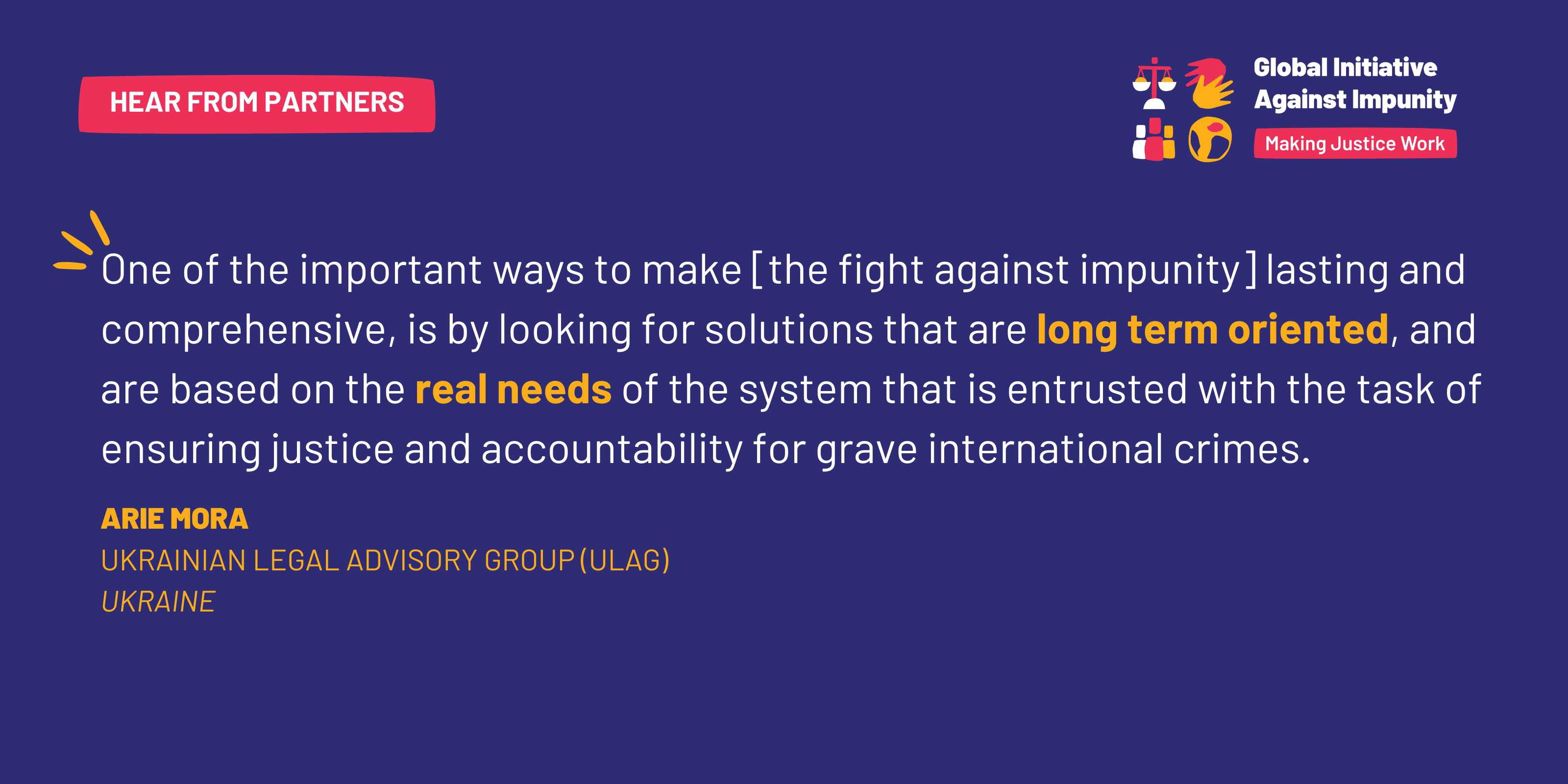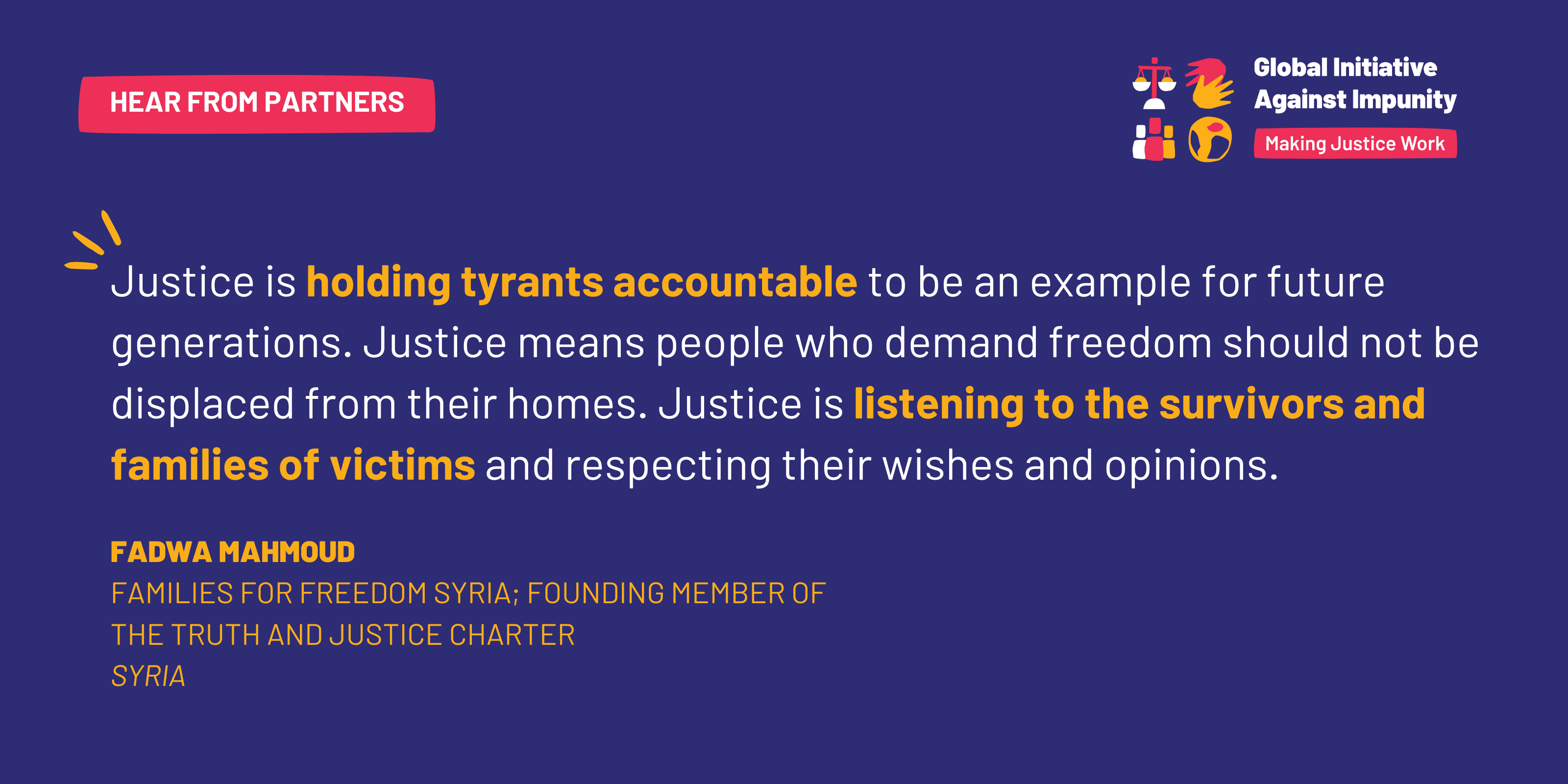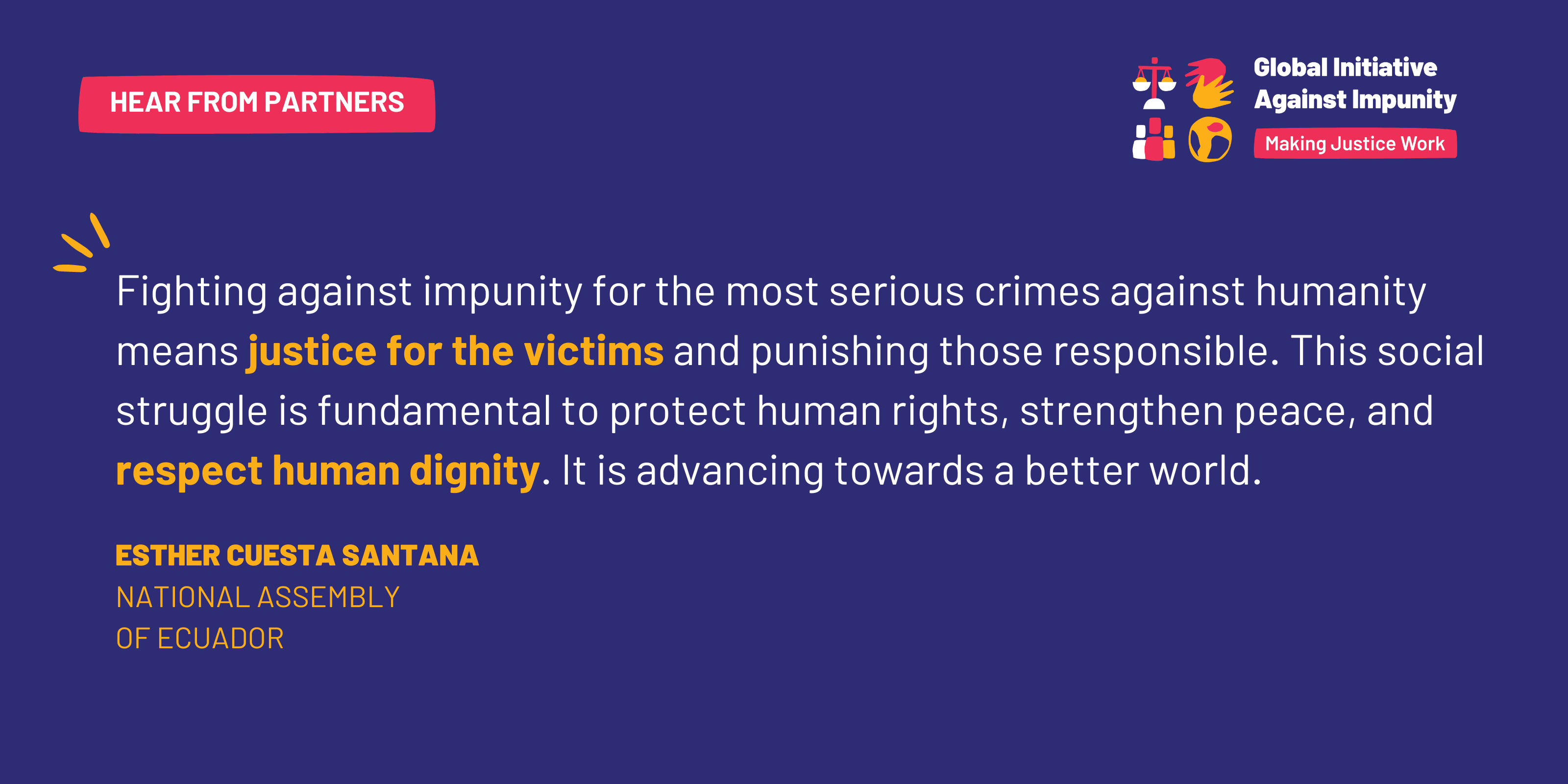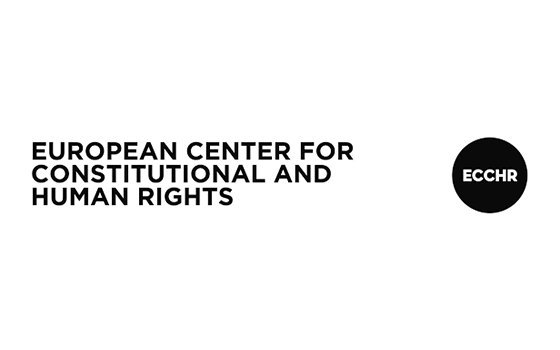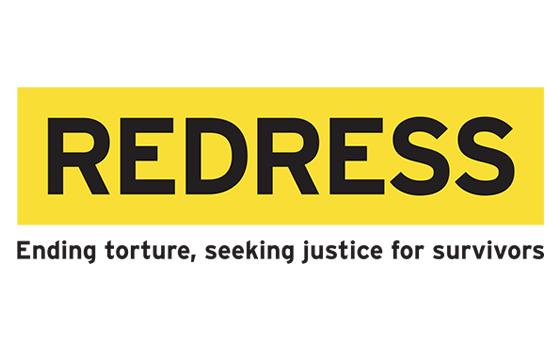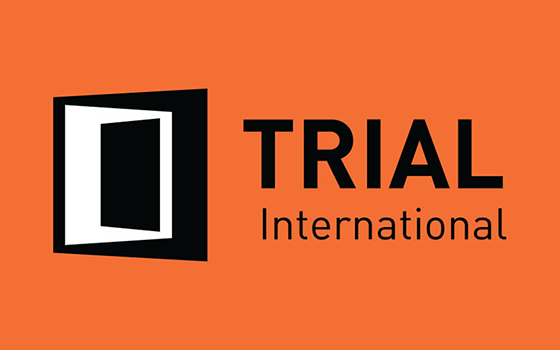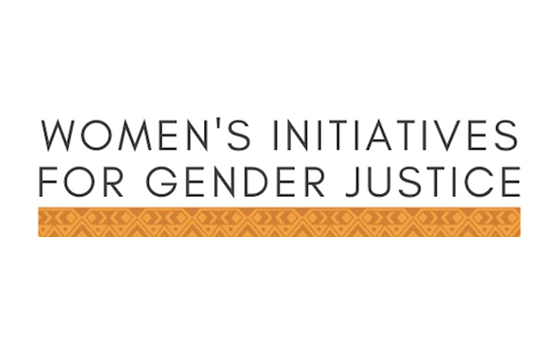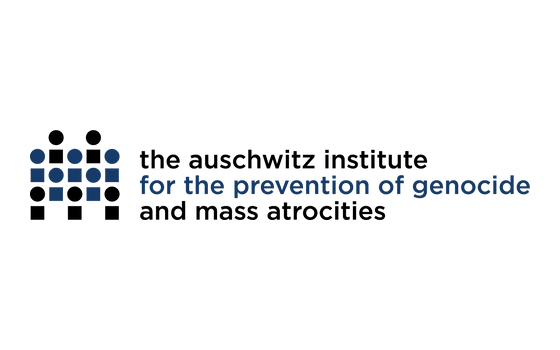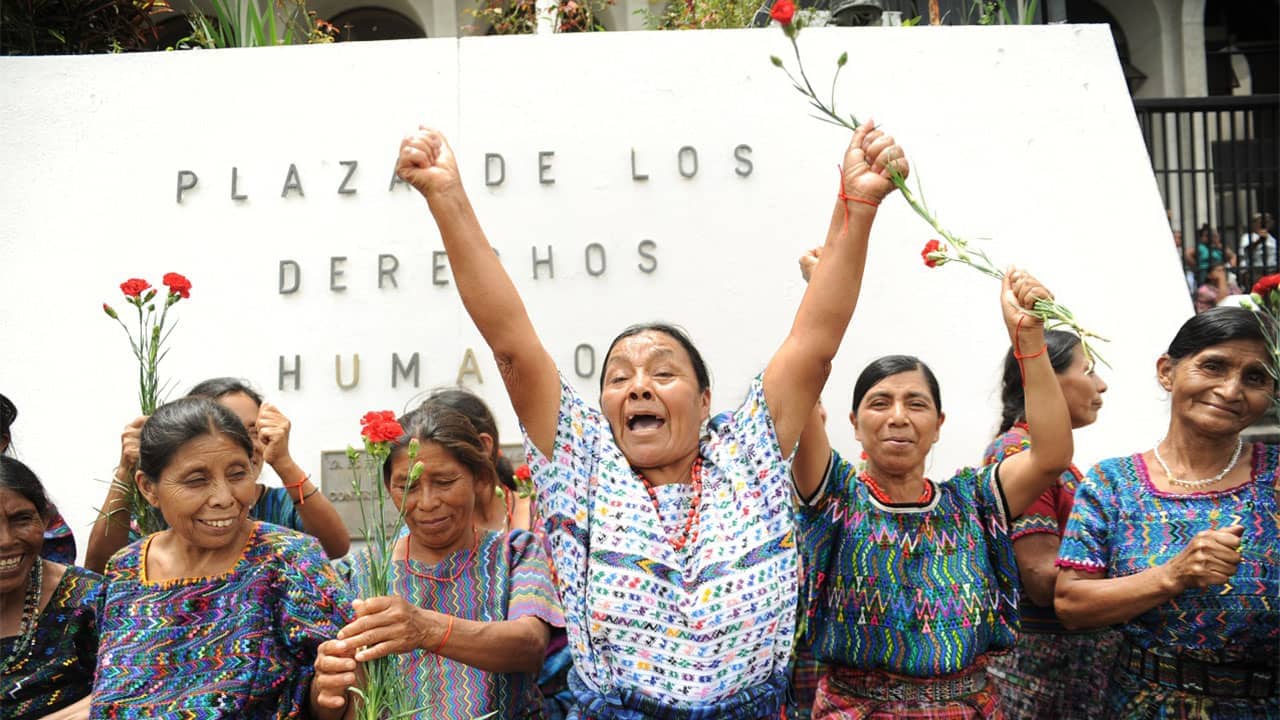
Impunity is the most significant obstacle to justice and reparation for victims and survivors of human rights violations and core international crimes. Often, only a small number of perpetrators are held accountable.
When impunity is pervasive, it has profound consequences for societies, especially for those with authoritarian governments experiencing conflict and economic oppression. Impunity fuels inequality, disproportionately affecting the most vulnerable and undermining trust in political institutions. Following violent conflict, it diminishes the chances of meaningful and peaceful change.
Impunity also has a detrimental effect on victim participation, as it allows perpetrators to impose their narrative, undermining the right of victims to be recognised as such and to have their voices heard. This is why strengthening victims and survivors’ ability to fight impunity through both formal and informal transitional justice processes is crucial.
While fighting against impunity can feel like an impossible task, the determination of survivors and civil society to make justice work has proven that by uniting forces, the tides can be turned against impunity.
Progress in the fight against impunity
In the last decades, significant efforts have been made to confront the rise of impunity in response to human rights, humanitarian law, and international criminal law violations. International and hybrid tribunals, special courts established at the national level, and ordinary national courts have been used to prosecute and punish perpetrators.
The arrest in London in 1998 of August Pinochet, who presided over a reign of terror in Chile, in which 40,000 people were tortured and 3,000 murdered or disappeared, marked a pivotal moment in international justice, igniting a quest for global justice. Similarly, the trial before the International Criminal Tribunal for the Former Yugoslavia of Ratko Mladić, the architect behind the Srebrenica massacre, who had evaded capture for 16 years, signalled that perpetrators of atrocities would not escape justice.
Investigations, trials, and convictions targeting former and current Heads of States have helped reinforce the notion that leaders are not above the law when it comes to the most egregious international crimes, for instance, with the convictions of Efraín Ríos Montt, Guatemala’s former leader, and Hissène Habré, Chad’s former dictator. Some of these prosecutions have been possible after amnesty laws were repealed, for example, in Argentina, allowing the prosecution and sentencing of around 1,000 members of the military and police for human rights abuses during the military dictatorship.
Beyond Heads of State, international justice mechanisms have been able to provide a measure of accountability and redress in other cases. In addition to the creation of the International Criminal Court (ICC) in 2002, the resurgence of universal jurisdiction and the application of extraterritorial jurisdiction have created new momentum to bring cases of international crimes committed abroad before national courts, including to hold economic actors accountable for facilitating and enabling international crimes. The latest Universal Jurisdiction Annual Review shows that the number of such prosecutions continues to grow.
Progress has also been made with transitional justice mechanisms such as Colombia’s Special Jurisdiction for Peace, which has sought to adopt a victim-centred approach that incorporates restorative and reparative measures in order to realise the right to justice and the recognition of individual responsibility.
The role of survivors and civil society
Survivors have played a fundamental part in these advancements, fighting relentlessly to bring perpetrators to justice, in some cases for decades. One example is the case brought by 36 Maya Achi women in Guatemala against former paramilitaries for sexual violence during the internal armed conflict. The case was originally dismissed in 2011, and victims denounced that they had been subjected to racism during the proceedings. However, thanks to their perseverance, a new judge convicted five perpetrators in 2022 for crimes against humanity and confirmed that sexual violence was used as a weapon of war.
Syrian victims and their families have also been instrumental in the process of seeking justice for thousands of people who forcibly disappeared during the conflict. In 2021, organisations of victims and their families created the Truth and Justice Charter, which reflected their common vision of how to advance victims’ rights, justice, and truth in Syria. In 2023, their advocacy efforts resulted in a groundbreaking UN resolution to establish a new international institution to determine the fate of more than 100,000 missing in Syria.
Fadwa Mahmoud, founding member of the Truth and Justice Charter and Families for Freedom Syria, explains:
Justice is holding tyrants accountable, in my country and everywhere else in the world, to be an example for future generations. Justice for people that went out to demand freedom, is to have the right to stay in their home country, if they wish. Justice is listening, that the world listens to survivors and families of detainees, and forcibly disappeared people, and respecting their wishes despite their diversity. Photo: Fadwa Mahmoud (SY) by Ars Electronica is licensed under CC BY-NC-ND 2.0
.
Civil society has also been at the forefront of international justice, from tracking perpetrators and filing complaints before courts around the world, to supporting victims and survivors’ efforts. Without the advocacy and mobilisation power of civil society organisations, the ICC would not exist. At present, the ICC investigates crimes in 17 countries, ranging from war crimes in the context of Russia’s full-scale invasion of Ukraine to war crimes and crimes against humanity in the situation in the State of Palestine.
Entrenched challenges of confronting impunity
Despite this progress, many challenges remain. Impunity has been facilitated by the erosion of national and international accountability mechanisms, the targeting or criminalisation of justice actors and human rights defenders, as well as weak political will and inadequate laws. Not enough efforts have focused on enabling the meaningful participation of survivors and in understanding and tackling the root causes of impunity necessary to challenge the political, social, and economic structures that oppress those who are central to making change happen.
These challenges have been coupled in recent years by a global context of diminishing civic space for victims and human rights defenders and the increasing risks they face.
The change of government in Sri Lanka led to a setback in the investigation into violations committed during the conflict. In Myanmar, while the targeting, killing of thousands, and mass displacement of over 700,000 Rohingya are known to the International Court of Justice and has been condemned by the independent international fact-finding mission on the country, no effort has been made to investigate or prosecute the perpetrators.
The lack of political will has also been exemplified, for instance, by the resistance of major military powers, such as China, the United States, and the Russian Federation, to ratify the Rome Statute. Furthermore, the double-standards practised by some western States are evident when it comes to bringing their own nationals to justice, as shown by the US initial efforts to derail the ICC investigation into the possible commission of war crimes by US forces in Afghanistan.
The lack of accountability perpetuates a culture of impunity and violence, as is the case of Sudan, which has been engulfed in a cycle of bloody armed conflicts for the past 20 years, the current one pitting two warring parties responsible for past atrocities for which they were never held accountable.
Sara Mekki, the daughter of prominent human rights defender Dr. Amin Mekki Medani, who was tortured in Sudan in 2014 as part of the government’s crackdown on dissenters, explains:
Impunity is like a cancer, a disease that only allows the perpetrators to commit more crimes and human rights violations without facing any consequences, leaving the victims more vulnerable and more broken. The only way to guarantee justice is if the international community works hard to end impunity, especially nowadays where international law is not respected and challenged daily.
Civil society stands up against impunity
To address this rising climate of impunity, nine civil society organisations and two associate partners have joined forces to lead the “Global Initiative Against Impunity for International Crimes and Serious Human Rights Violations: Making Justice Work”
Each of the organisations, in collaboration with their vast networks of regional and national partners around the world, will contribute their expertise in promoting justice and accountability for serious human rights violations, including torture, enforced disappearance, and other core international crimes, such as genocide, crimes against humanity, war crimes, and the crime of aggression.
This strategic partnership comprises the following consortium members: Civil Rights Defenders, Coalition for the International Criminal Court, European Centre for Constitutional and Human Rights, International Federation for Human Rights (FIDH), Impunity Watch, Parliamentarians for Global Action, Women’s Initiatives for Gender Justice, REDRESS and TRIAL). They are supported by two associate partners: the Auschwitz Institute for the Prevention of Genocide and Mass Atrocities and the International Commission of Jurists.
The four-year Initiative, co-funded by the European Union, will have a special focus in 2024 on 27 countries in Africa, the Americas, Asia, Europe, and the Middle East, but it will also seek to improve the rule of law, accountability standards, and atrocity prevention in other countries of these regions.
Confronting impunity is no mean feat. Perpetrators do not relinquish power easily, and efforts to hold them accountable are often met with resistance. However, civil society can drive meaningful change through coordinated, strategic, and survivor-centred action.
To this end, the Global Initiative against Impunity has developed a comprehensive approach that seeks to secure far-reaching justice and accountability for survivors and victims by working on two main fronts:
- Enhancing victims’ and civil society’s agency and participation in shaping inclusive justice and accountability processes, as their exclusion undermines prospects for achieving meaningful justice and sustainable change.
- Strengthening the effectiveness of the accountability frameworks and systems to fight impunity through dialogue, advocacy and awareness raising between justice providers and duty-bearers with survivors and civil society organisations.
All actions will be guided by a survivor-centred approach and will promote a trauma-informed and gender-responsive strategy where victims engage as actors and advocates. This approach is rooted in a broad understanding of impunity, its root causes, and the systemic drivers that enable it.
Survivor participation in justice processes is not only an opportunity for trauma healing and individual empowerment, it is also essential to combating the egregious rise of impunity. Placing survivors at the centre of justice and accountability efforts will ensure that the mechanisms in place are meaningful and can achieve long-term, sustainable change. The consortium will also foster coordination and knowledge and experience sharing with other initiatives and key actors involved in the global fight against impunity.
The threat of impunity is too great to tackle alone, but through collaboration, the Global Initiative Against Impunity aims to help make justice work for those who need it most.

